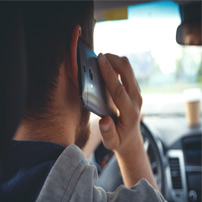Philadelphia Products Liability Lawyers Discuss the Danger of the Samsung Galaxy Note 7
December 1, 2016 In September 2016, Samsung was forced to recall the Galaxy Note 7 phone due to multiple reports of explosions and overheating. The recall came as a consequence of a problem with the battery.
In September 2016, Samsung was forced to recall the Galaxy Note 7 phone due to multiple reports of explosions and overheating. The recall came as a consequence of a problem with the battery.
The battery of a cell phone is one of its most important components, and a strong battery is often a major selling point behind a technological product. Since cell phones are rechargeable, they employ lithium-ion cells. A lithium-ion cell is a common type of battery used in home electronics and cell phones. However, because a lithium-ion cell has an extraordinary amount of energy and is able to charge a phone at any point, its power actually causes it to be more at-risk for incidents such as overheating and explosions.
Samsung’s report detailed the battery cell issues that were found in the aftermath of consumer complaints and injuries. Inside the Galaxy Note 7 is a battery management system, which essentially acts to communicate from one part of the phone to another, sending the message that it is the time to stop charging once the battery has been refueled enough. While it is still slightly unclear as to where the actual glitch lies – either in the battery management system or in a chip that records the message to discontinue charging the battery – what is clear is that the Galaxy 7 was made with faulty technology that has caused multiple phones to overcharge, explode and/or overheat.
Because this is not the first time that reports have come out about cell phones exploding, either putting people at risk or injuring them, scientists and engineers are making strides in the field to improve the quality of cell phone batteries, thus improving consumer safety. There are experts at the University College London (UCL) who are actively working on and researching lithium-ion batteries and studying the way they function before they fail as well as afterwards. What they have discovered is that there are a range of influences on what can make batteries dangerous. One thing that the UCL researchers found is that rectangular batteries, like the batteries inside the Samsung Galaxy Note 7 – as well as many other cell phones – are more likely to fail, overheat, explode and/or overcharge because they lack a fail-safe that stops an electrical current from continuing to charge. In other words, without a fail-safe in place, there is no way for the battery management system to communicate that there is a problem with the battery charge and simply shut down the power.
Cell phone manufacturers do not always care about using the safest batteries and systems for their products, and the scientists and engineers who develop them are very much responding to what it is that the manufacturers want. But, the UCL has paired up with NASA and is working on developing a device that causes a battery to short circuit at a specific location, which then allows for them to see the exact way that heat goes throughout the remainder of the device. Technological strides and research like this could, in the future, allow for engineers and manufacturers alike to utilize safer, stronger methods of battery development. If battery management systems can be made safer, the risk of catastrophic battery failures, overheating, explosions and overcharging would be greatly diminished, and the amount of people who are put at risk or are hurt and injured would go down substantially.
Philadelphia Products Liability Lawyers at Galfand Berger, LLP represented clients who have been injured by faulty or malfunctioning products
If you or any of your loved ones have experienced such a situation, the product liability lawyers at Galfand Berger, LLP can help. With offices located in Philadelphia, Reading and Bethlehem, we serve clients throughout Pennsylvania and New Jersey. To schedule a consultation, call us at 800-222-8792 or complete our online contact form.
 Google Screened
Google Screened
